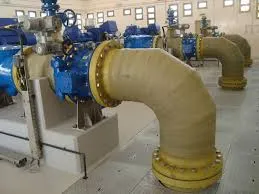
-
 Afrikaans
Afrikaans -
 Albanian
Albanian -
 Amharic
Amharic -
 Arabic
Arabic -
 Armenian
Armenian -
 Azerbaijani
Azerbaijani -
 Basque
Basque -
 Belarusian
Belarusian -
 Bengali
Bengali -
 Bosnian
Bosnian -
 Bulgarian
Bulgarian -
 Catalan
Catalan -
 Cebuano
Cebuano -
 China
China -
 China (Taiwan)
China (Taiwan) -
 Corsican
Corsican -
 Croatian
Croatian -
 Czech
Czech -
 Danish
Danish -
 Dutch
Dutch -
 English
English -
 Esperanto
Esperanto -
 Estonian
Estonian -
 Finnish
Finnish -
 French
French -
 Frisian
Frisian -
 Galician
Galician -
 Georgian
Georgian -
 German
German -
 Greek
Greek -
 Gujarati
Gujarati -
 Haitian Creole
Haitian Creole -
 hausa
hausa -
 hawaiian
hawaiian -
 Hebrew
Hebrew -
 Hindi
Hindi -
 Miao
Miao -
 Hungarian
Hungarian -
 Icelandic
Icelandic -
 igbo
igbo -
 Indonesian
Indonesian -
 irish
irish -
 Italian
Italian -
 Japanese
Japanese -
 Javanese
Javanese -
 Kannada
Kannada -
 kazakh
kazakh -
 Khmer
Khmer -
 Rwandese
Rwandese -
 Korean
Korean -
 Kurdish
Kurdish -
 Kyrgyz
Kyrgyz -
 Lao
Lao -
 Latin
Latin -
 Latvian
Latvian -
 Lithuanian
Lithuanian -
 Luxembourgish
Luxembourgish -
 Macedonian
Macedonian -
 Malgashi
Malgashi -
 Malay
Malay -
 Malayalam
Malayalam -
 Maltese
Maltese -
 Maori
Maori -
 Marathi
Marathi -
 Mongolian
Mongolian -
 Myanmar
Myanmar -
 Nepali
Nepali -
 Norwegian
Norwegian -
 Norwegian
Norwegian -
 Occitan
Occitan -
 Pashto
Pashto -
 Persian
Persian -
 Polish
Polish -
 Portuguese
Portuguese -
 Punjabi
Punjabi -
 Romanian
Romanian -
 Russian
Russian -
 Samoan
Samoan -
 Scottish Gaelic
Scottish Gaelic -
 Serbian
Serbian -
 Sesotho
Sesotho -
 Shona
Shona -
 Sindhi
Sindhi -
 Sinhala
Sinhala -
 Slovak
Slovak -
 Slovenian
Slovenian -
 Somali
Somali -
 Spanish
Spanish -
 Sundanese
Sundanese -
 Swahili
Swahili -
 Swedish
Swedish -
 Tagalog
Tagalog -
 Tajik
Tajik -
 Tamil
Tamil -
 Tatar
Tatar -
 Telugu
Telugu -
 Thai
Thai -
 Turkish
Turkish -
 Turkmen
Turkmen -
 Ukrainian
Ukrainian -
 Urdu
Urdu -
 Uighur
Uighur -
 Uzbek
Uzbek -
 Vietnamese
Vietnamese -
 Welsh
Welsh -
 Bantu
Bantu -
 Yiddish
Yiddish -
 Yoruba
Yoruba -
 Zulu
Zulu
fiberglass trough cover
The Benefits of Fiberglass Trough Covers
In the pursuit of efficient and durable solutions for many industrial and agricultural needs, fiberglass trough covers have emerged as a practical choice for various applications. These covers, designed to fit over troughs used in water management, feeding systems, or even industrial processes, offer a range of benefits that make them increasingly popular among farmers, manufacturers, and environmentalists alike.
Durability and Longevity
One of the primary advantages of fiberglass trough covers is their remarkable durability. Fiberglass is a composite material made from glass fibers and resin, which grants it exceptional strength and resistance to weathering. Unlike traditional materials such as wood or metal, fiberglass does not rust, rot, or corrode. This means that trough covers made from fiberglass can withstand harsh environmental conditions, including UV exposure, heavy rainfall, and extreme temperatures, ensuring a longer lifespan and reduced need for replacements.
Lightweight and Easy to Handle
Despite its strength, fiberglass is surprisingly lightweight compared to metals like steel or aluminum. This characteristic makes fiberglass trough covers easy to handle and install, reducing labor costs and improving efficiency during setup. Users can easily lift and reposition covers to access troughs underneath, which is particularly beneficial in settings where frequent maintenance is required.
Customization and Versatility
fiberglass trough cover

Fiberglass trough covers can be easily customized to fit various trough shapes and sizes, accommodating the specific needs of different applications. Whether for agricultural feed troughs, water reservoirs, or industrial containers, fiberglass covers can be molded and manufactured to meet precise specifications. Additionally, fiberglass can be manufactured in different colors or finishes, providing options for aesthetic preferences and improved visibility in work environments.
Cost-Effectiveness
While the initial investment in fiberglass trough covers may be higher than that for traditional materials, their long-term benefits often outweigh upfront costs. The longevity and low maintenance requirements of fiberglass reduce replacement frequency and associated costs over time. Moreover, the energy efficiency provided by insulated fiberglass covers can lead to savings in heating and cooling costs in systems that require temperature control.
Environmental Benefits
The use of fiberglass trough covers can also contribute positively to environmental efforts. By preventing contamination and evaporation, these covers help maintain the quality of water in troughs, promoting better conservation practices. Moreover, their durability means fewer covers need to be discarded over time, reducing waste and the environmental impact associated with manufacturing and disposal of traditional materials.
Conclusion
In summary, fiberglass trough covers offer an array of benefits that make them an excellent choice for a variety of applications. Their durability, lightweight nature, versatility, cost-effectiveness, and environmental advantages make them a smart investment for farmers and industrial operators alike. As the demand for sustainable and efficient solutions continues to grow, fiberglass trough covers stand out as a significant innovation worth considering for anyone looking to improve their operational efficiency while also contributing to environmental preservation.









